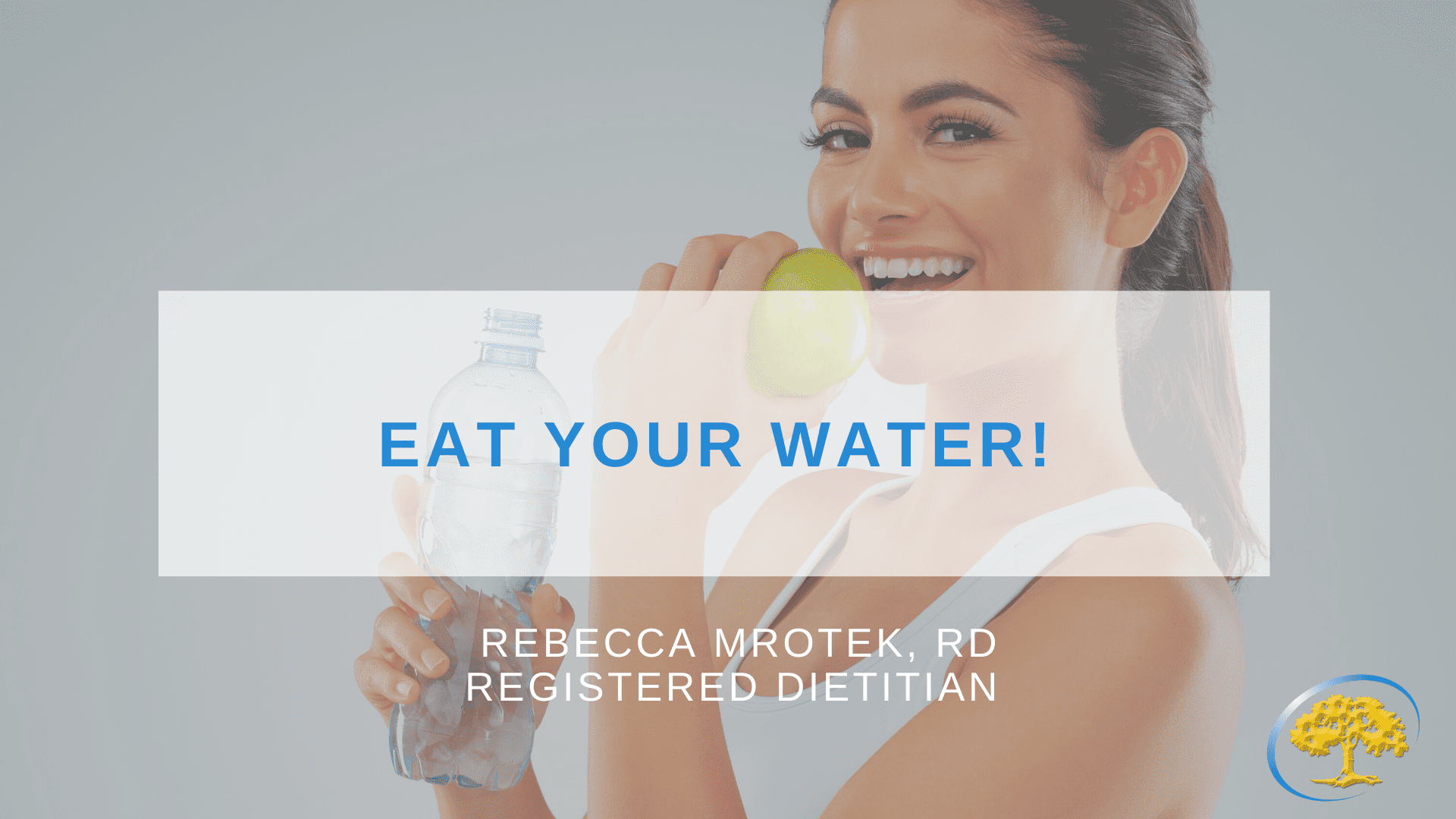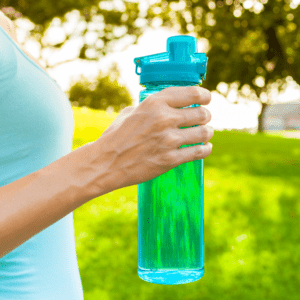
Posted 3 years ago
Eat your Water!
I doubt you knew you could eat your water, but there are so many foods rich in fluid that can help you stay hydrated during those hot Arizona summers. During treatment, you are more at risk for dehydration since your fluid needs increase. Try to incorporate some of these foods every day to prevent dehydration. The most fluid-filled foods are found in fruits and vegetables, and they are found in abundance in local grocery stores. Generally, 20% of fluid intake comes from the foods we eat. These foods work to hydrate our bodies in addition to being packed with crucial vitamins and minerals.

How much fluid do I need? Recommendations for water intake are varied, largely because climate, activity, age, gender, and other individualized factors can change one’s needs daily. General recommendations suggest women consume around 11.5 cups and men 15.5 cups. During treatment, these needs increase individually. The general recommendation used is 30-35 ml fluids per kilograms of body weight if going through treatment.
How do I know if I am dehydrated? Usually, your body will let you know if you are not drinking enough fluids. The most well-known sign is urine color, the darker the urine, the more dehydrated you probably are. Other signs that may indicate dehydration: dizziness/dizzy spells, dry skin and mouth, an increased heart rate or breathing, decrease in urination, and confusion. These are all signs that the body is using to tell you that you do not have enough fluids. Some acute illnesses that are common during treatment include excessive vomiting, diarrhea, and fevers which will put you more at risk for dehydration. If this occurs, start increasing your fluid intake before any of these signs occur and try to drink something with electrolytes like Gatorade or Liquid I.V electrolyte powder.
Can I only drink water to stay hydrated? While water is the most ideal source of hydration, it isn’t the
only source of fluids. Juices, decaffeinated teas, and fat-free milk can all provide you with hydration. Even sodas and sport drinks will provide hydration. The most uncommonly thought of source for hydration is through our foods. There are so many fruits and vegetables that contain high amounts of fluids. Let’s take a look at some of these examples and the other benefits they can provide:
Vegetables
Spinach: This green leaf vegetable is an amazing source of water, as 91% is made up of water. Not only will it hydrate you, but it is an amazing source of iron, fiber, folate, potassium, and vitamin A and K.
Zucchini: With a 94% water content, this will hydrate you and load you up with vitamin C. Be careful when cooking or baking with it because of this high-water content, sometimes it can overly moisten dishes.
Celery: Making its way to the top of the list of vegetables is celery, containing 95% water. Crunch into a piece of celery and release water, vitamin K and potassium.
In addition to these vegetables, you can find high amounts of water in radishes, eggplants, broccoli, carrots, bell peppers, and more. Try to incorporate 4-5 servings of vegetables a day for your health and
hydration.
Fruits
Blueberries: This superfruit packs a powerful punch of antioxidants to protect against cancer, vitamin C, fiber, and vitamin K. With all these benefits, its only logical that they are comprised of 85% water to
keep us hydrated all summer long.
Watermelon: Of course, we must talk about watermelon- it’s in the name. Watermelon is 92% water,
tastes delicious, and gives us summertime memories with a side of vitamin C, vitamin A, and
magnesium.
Cantaloupe: It is cantaloupe season which is perfect timing for our dry land here in Arizona! Only one cup of this delicious fruit is needed to give your body half a cup of water. Pick some up the next time you go to the grocery store, they are at their optimal sweetness!
Take some of these fruits and make a bright and colorful summer salad, a fresh parfait, or a compliment to a meal. There are so many other fruits that will hydrate you like apples, pineapples, grapefruit, and oranges. Aim for 1.5-2 cups a day of fresh fruit a day. Sometimes, it can be hard implementing vegetables and fruits with meals. There are other sources of hydrating foods like soups, yogurt, and oatmeal. However you stay hydrated, be sure to prioritize it during these long summer months. If you need any help, Ironwood Cancer and Research Center has dietitians on staff to help you met your hydration needs.


